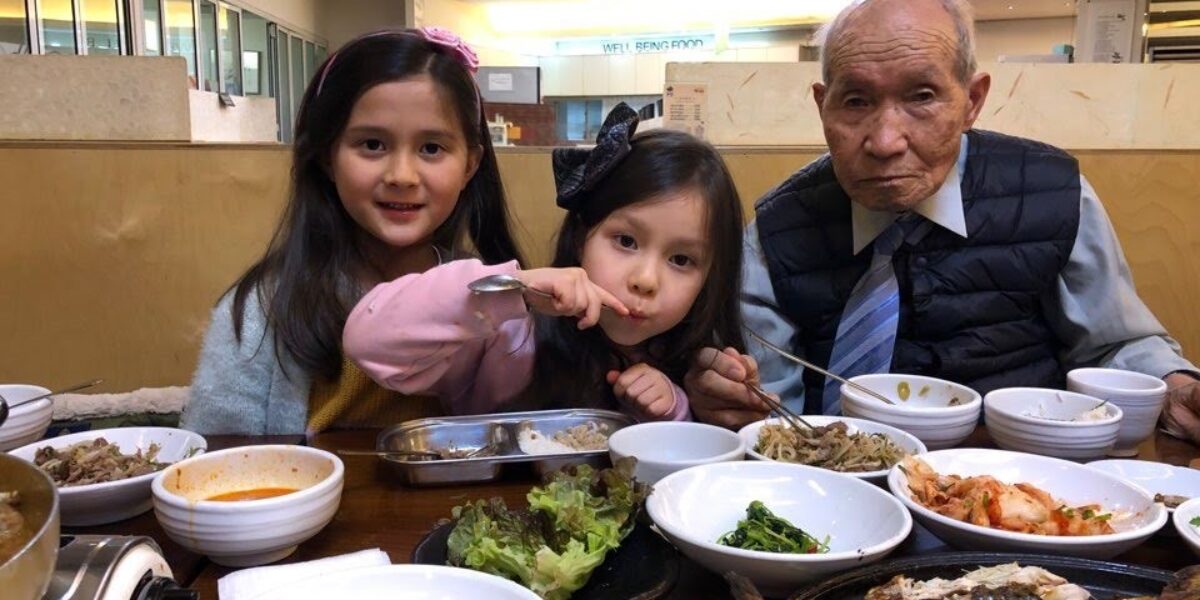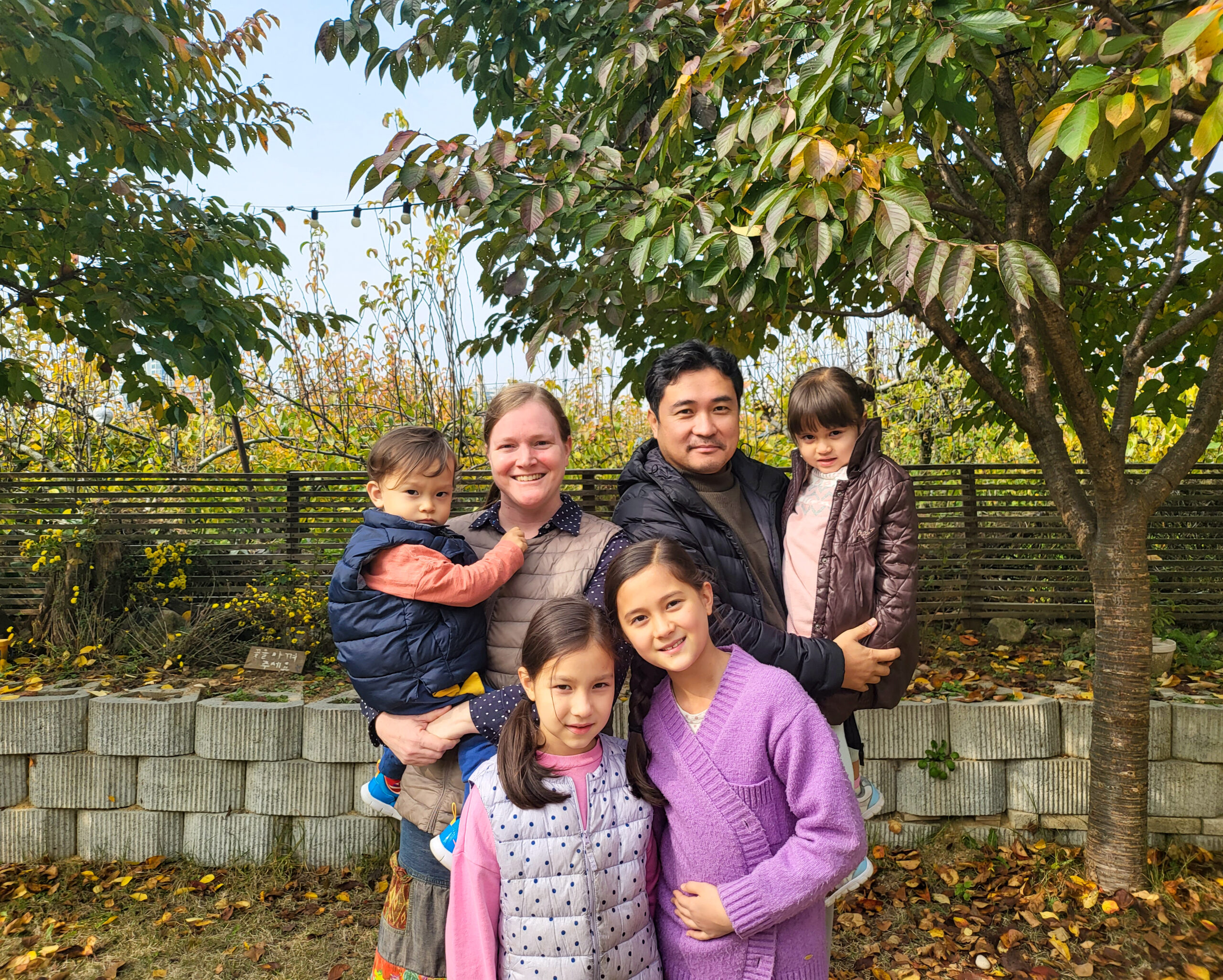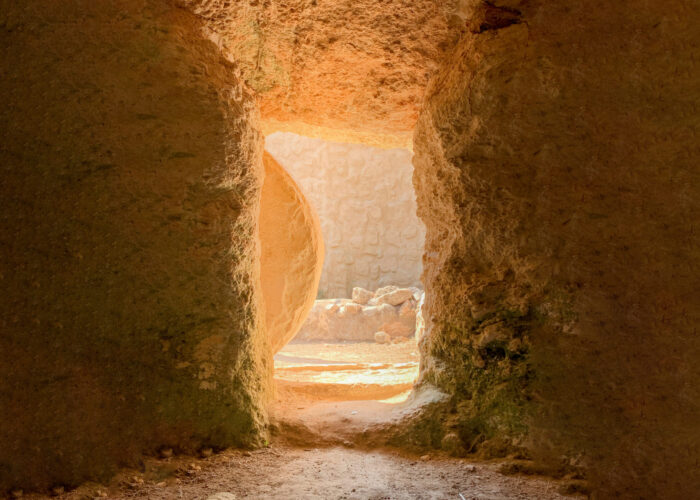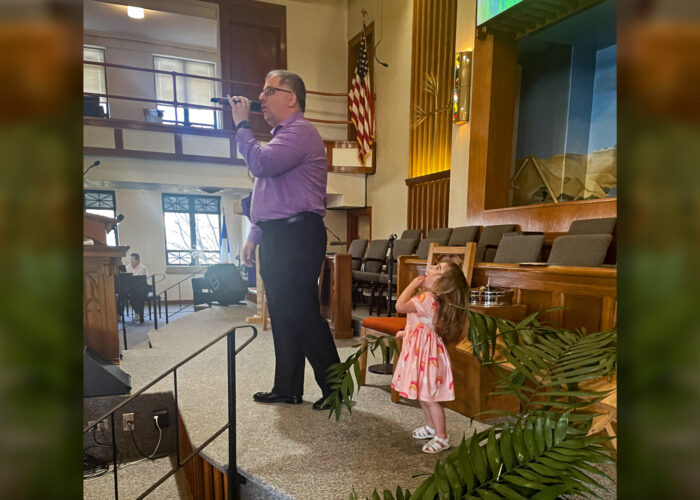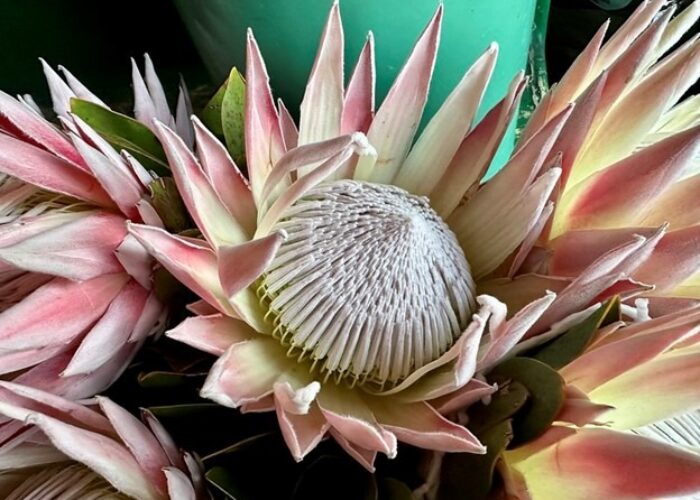Jae Young Lee and Karen Spicher are Mennonite Mission Network mission associates in Namyangju, South Korea. Spicher serves as the communications coordinator for the Northeast Asia Regional Peace Building Institute (NARPI). Jae Young directs the Korea Peacebuilding Institute (KOPI) and provides leadership to NARPI. Lee, Spicher and their four children work and live in community with other families at Peace Building in Namyangju. For more information on their ministry, click here.
I was born in Phoenix, Arizona, in 1979. When I was young, our family occasionally visited the Navajo Nation, and Mom and Dad helped with Vacation Bible School. I knew that the Navajo were a people with a beautiful culture, but I didn’t know their history, or why they were living on a "reservation," or why they had to drive so far to get drinking water.
When I was 10 years old, our family moved to Central Pennsylvania, near where my parents were raised. I felt a strong connection to the land — especially on the farm where my mother grew up — and thought of it as our family’s land. I learned in church that everything is God’s, but still, I felt that God had given us this land to live on.
In elementary school, starting in fourth grade, I read stories written by European men who settled in the Americas — stories about "discovery" and the many difficulties that the early settlers faced. I learned about several different groups of Native Americans in descriptions written by White historians.
In university, I read perspectives from those who suffered because of colonization, genocide and slavery, in Howard Zinn’s book A People’s History of the United States. I knew deep down that these were important truths for me to know, but I didn’t reflect deeply on how history shapes our current reality.
While still in university, I traveled to Guatemala for a semester of cross-cultural studies and witnessed the suffering of an Indigenous people whose land had been taken and who were forced to move to high mountain land, where farming is difficult. We also learned about the genocide of Indigenous people during the Guatemalan Civil War. I didn’t make a strong connection between the history of displacement and genocide and the land where I grew up.
After university, I moved to south Texas, where I learned to love a new culture. I participated in antiracism training and started to understand the importance of following leadership and guidance from local people. I also failed at this many times. Through my connections with Mennonite Central Committee (MCC), I learned about the "Return to the Earth" project (a program by Indigenous Americans that buries unidentified ancestral remains), as well as MCC’s efforts for education about settler colonialism.
In 2007, I moved to Korea. I fell in love, got married and became an alien in a land far from home. I came to love our community here. When I started learning more about the history of Korea and the time of Japanese colonization, from 1910-1945, there was a moment that I was suddenly overcome with "what if" questions.
What if the Japanese Imperial Government was still in power in Korea?
What if Korean people all spoke Japanese now and couldn’t remember the Korean language?
What if Korean culture was erased and looked down upon?
What if Korean people were forced to live on small reservations on the Korean peninsula?
What if Korean people became marginalized on their own land?
These questions were detestable and unimaginable; as they came to me, I felt my eyes opening in a new way. I could finally see the evil of colonization. It felt like healing from spiritual blindness.
I now realize that I live in a broken relationship with the people who first inhabited the land that is now called the Americas. Three ways that I commit to seek reconciliation with Indigenous sisters and brothers are: to repent for the sins of our nation, to listen with an open heart to Indigenous voices, and to teach our children truthfully about the past and present.
When we pull weeds from the garden, we try to get the roots, too. Colonization is a deep, ugly root of injustice in the U.S. and all over the world — one that we must not ignore. Anabaptist followers of Jesus around the world are working for peace and justice in many different areas. Whatever work for peace and justice you are called to do, I pray that you will also seek ways to uproot colonization.

